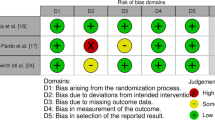Abstract.
Background: Postanoxic encephalopathy is frequent in patients presenting with abrupt cardiac arrest or respiratory failure. Little is known about the effectiveness of oral medications on the cognitive and motor consequences. Objective: To present data suggesting partial improvement after administration of levodopa/benserazide. Methods: After observing partial benefit in one case, each patient admitted to rehabilitation following brain anoxia was systematically treated with levodopa/benserazide (200/50 to 400/100 mg/day), then bromocriptine (15 mg/day). Results: In the first patient, brain anoxia was severe, with secondary agitation, quadriparesis, involuntary movements, inattention and communication disorders. Introduction of levodopa/benserazide resulted in reduction of agitation and involuntary movements and improvement of communication, thus facilitating care and rehabilitation efforts. A weaning test resulted in rapid worsening. The four following patients also presented with anoxia of variable severity. Marked improvement was observed in case 2, presenting with agitation, loss of orientation, amnesia, postural disorders, involuntary movements and dysphagia, with a withdrawal test resulting in immediate re-enhancement of symptoms. Modest improvement was observed in patient 3, who had hypokinesia, rigidity, adynamia, impaired attention, and reduced verbal fluency. Patient 4 presented with memory disorders without motor difficulties: mild improvement was observed in daily life and memory tests. In patient 5 who also presented with severe memory disorders, the benefit was absent. In each case, bromocriptine was introduced 3–4 weeks following levodopa, but without additive effect. Both treatments could be interrupted after a few months, without worsening. Conclusions: Levodopa and benserazide can be of benefit in the few months following brain anoxia, especially on some of the motor disorders and apathy, but the benefit is inconstant and modest on memory disorders. Anoxia could alter dopaminergic mesencephalic systems, which activate the striatal and mediobasal frontal cortex, and these disorders could be partially reversible by medical treatment.
Similar content being viewed by others
Author information
Authors and Affiliations
Additional information
Received: 31 January 2002, Received in revised form: 6 June 2002, Accepted: 12 June 2002
Correspondence to Dr. Marc Rousseaux
Rights and permissions
About this article
Cite this article
Debette, S., Kozlowski, O., Steinling, M. et al. Levodopa and bromocriptine in hypoxic brain injury. J Neurol 249, 1678–1682 (2002). https://doi.org/10.1007/s00415-002-0903-1
Issue Date:
DOI: https://doi.org/10.1007/s00415-002-0903-1




